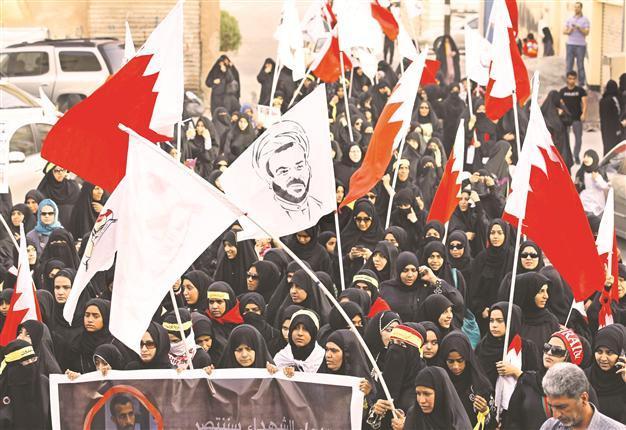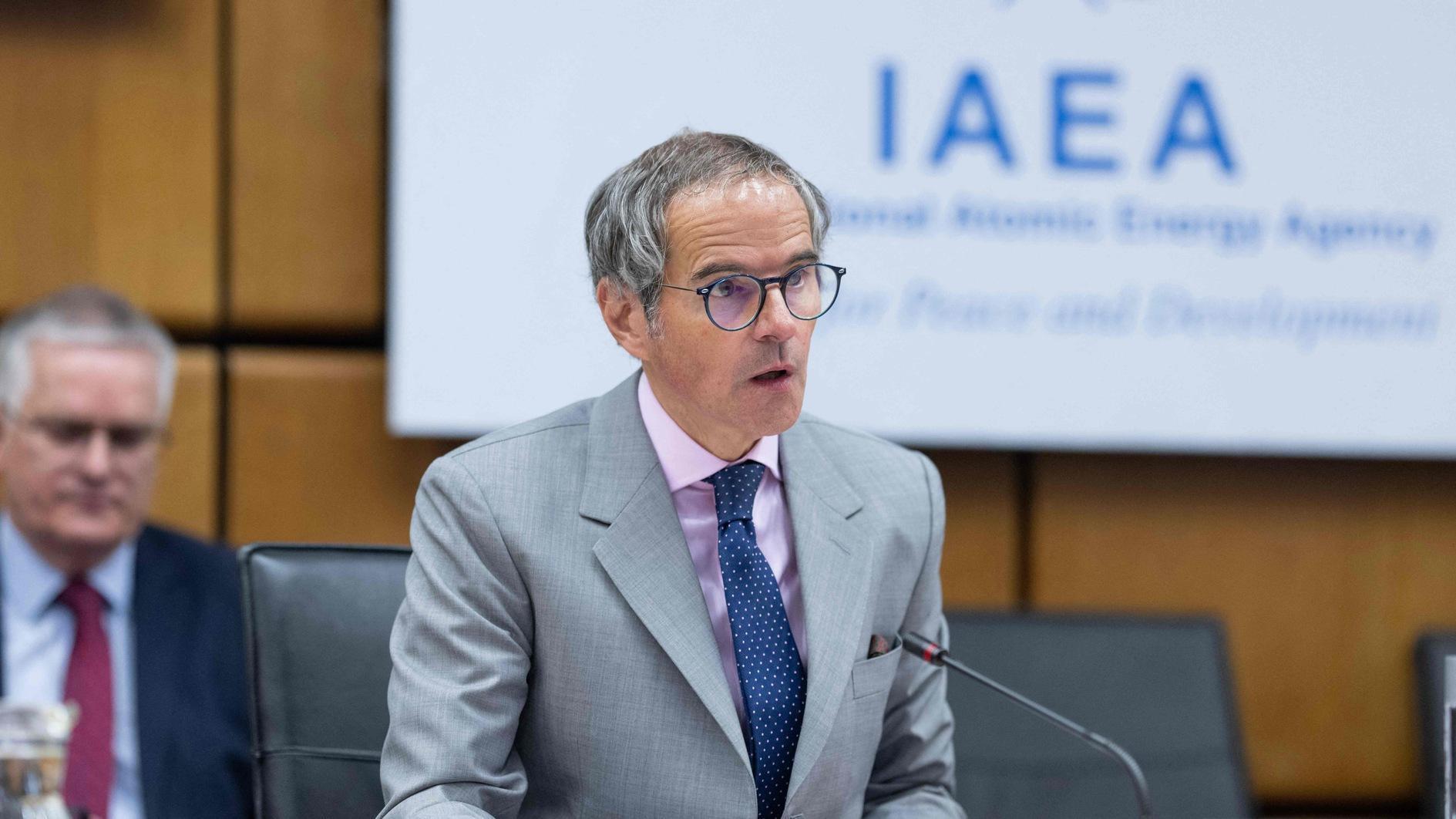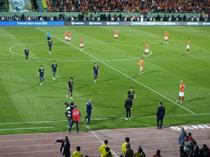Top sports events set the stage for freedom and human fights
James M. Dorsey ISTANBUL - Hürriyet Daily News

Protesters hold pictures of activists march to commemorate Salah Abbas Habib, who was found dead after clashes with police prior to the Formula One Grand Prix in the country. REUTERS Photo
With the London Olympic Games just around the corner, major global sporting events are increasingly proving to be Middle Eastern battlegrounds for greater freedoms and human rights rather than an expensive way for countries to boost their international prestige and sense of national pride.Flashy, high-profile events in the Middle East, such as the 2022 World Cup in Qatar, Formula One in Bahrain and Abu Dhabi and tennis championships in Dubai, have already become leverage points in the hands of international and local activists as well as flashpoints of protests against autocratic regimes.
To detractors of Gulf Arab regimes the tournaments are not just games, but symbols of an effort to retain power in part by squandering resources to pacify people with glittering totems of unbalanced and often misconceived development. That perception is reinforced by a sense that the major economic benefactors of sporting events are often members of the host’s ruling family.
Olympic ‘problem’
The British Foreign Office struggled to ban a Syrian general who was close to embattled President Bashar al-Assad from attending the Olympics. General Mowaffak Joumaa, head of Syria’s Olympic committee, had signaled his intention to be present in London in contrast to Iranian President Mahmoud Ahmadinejad who said he was not coming because Britain had an undisclosed “problem” with his presence.
Meanwhile, the Gulf States feel the heat of the labor movement to change foreign workers’ conditions, widely denounced as modern day slavery, as a result of Qatar winning the bid to host the 2022 World Cup.
Anti-government protests foiled a Bahraini attempt earlier this year to use Formula-1 to portray the country as stable and harmonious following last year’s hard-handed suppression of anti-government demonstrations. The attempt backfired. Rather than focusing on happenings on the race track international attention turned to continued discontent and the government’s failure to move ahead with meaningful political and economic reforms demanded by the Shiite Muslim majority of the ruling Sunni minority.
Union pressure to change the labor system cuts to the core of the nature of Gulf societies, whose dependence on foreign labor has turned the local citizenry into a minority in countries like Qatar, Kuwait, the United Arab Emirates and Bahrain. Beyond the commercial and economic advantages of a cheap pool of labor, discussion of any kind of rights for non-locals raises the specter of minority Gulf populations no longer having countries that they control.
Gulf States are nonetheless seeking to avoid confrontation with the International Trade Union Confederation (ITUC), which represents 175 million workers in 153 countries. The ITUC is threatening Qatar with a boycott campaign of the 2022 World Cup if it fails to bring the conditions of up to one million primarily Asian workers engaged in construction of stadiums and other huge infrastructure projects in line with international standards.
Saudi Arabia followed Qatar in announcing that it was looking to replace employer sponsorship of workers with a licensing system. Qatari Labor Undersecretary Hussein Al-Mulla said that the Gulf state would form “an elected and independent workers’ union to protect workers’ rights regardless of their nationality.”
Those moves are too little too late. The states have failed to appease the ITUC and have put world football body FIFA on the spot as it does not want to be seen endorsing the event on the back of perceived slavery and violations of human rights.
‘No Cup without rights’
Trade unions are moving ahead with plans for a global campaign under the motto ‘No World Cup in Qatar without labor rights’, to deprive Qatar of its right to host the 2022 World Cup if it failed to align its labor legislation and workers’ condition with international standards.
The unions’ sense of urgency stems from the death last year of some 200 Nepalese workers, allegedly as the result of harsh working conditions.
The battle for labor rights is one that could significantly alter the paradigm on which international sporting bodies like FIFA and the International Olympic Committee award hosting rights. A successful campaign for labor rights would force such bodies to take workers’ conditions and by extension, adherence to human rights, into account in the awarding of future tournaments. Qatar learned the price of reputational risk this week when the International Olympic Committee rejected its bid for the 2020 Olympics. An anti-Qatar campaign could complicate future bids for major sporting events.
When asked whether he was content with having a comfortable life but no rights, the scion of a wealthy South Asian family in the Gulf answered: “Life is good.” But when asked whether he minded that his children would grow up with no rights and no security, he responded: “Absolutely, that is no longer acceptable. Gulf societies will have to change by hook or by crook.”
















